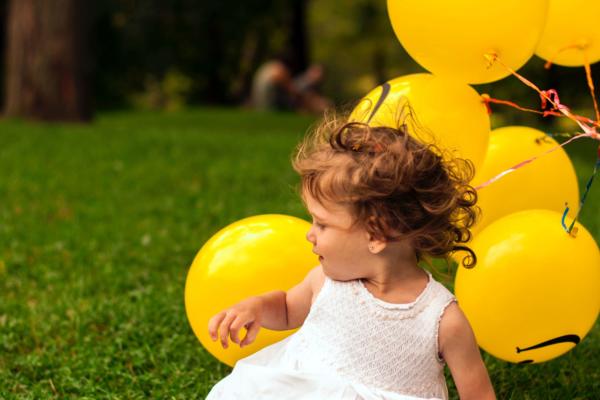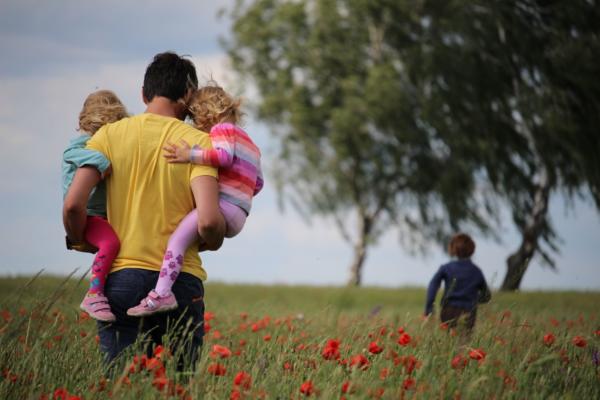When our children were young, we could control their lives and make decisions on their behalf.
Their independence got as far as climbing onto the kitchen counter to steal a biscuit. Nowadays, it’s a different story: we send them out into the world and hope beyond hope that they make the right choices.
But what if your grown-up child announces that they want to foster or adopt a child or young person?
You may be delighted – or quite understandably, you may feel anxious. What's most likely is a combination of a lot of different emotions!
Perhaps you can identify with one of these concerns:
"They haven’t thought it through."
Adoption and fostering are huge life choices, and you’re right to be concerned about the level of thought has gone into this decision.
The simple way to find out is to ask. Find out what books or resources they've read, what videos they've watched.
Have they been to an information event, perhaps held by the local authority, an independent adoption agency, or Home for Good?
Have they talked with other adopters and foster carers about their experiences?
It's fine to ask the questions – as long as you listen to the response. It's likely that this is something that has been stirring in their hearts and minds for a long time. It's likely that lots of thought and research has gone on before they've even made the bold decision to share their thinking. So, approach the topic with generosity and curiosity.
What's important to remember is that caring for children and young people is a life-long learning journey, and the application and assessment process will require a huge amount of thought, consideration, training and discussion. Your child won't have thought through everything yet - because there is so much to think through.
If you identify that there are still areas to be explored, why not explore them together? Perhaps you could read the same book, or attend the same training? Home for Good have a number of resources that could support you as you learn together - you could use our Make Room Bible study together, or come along to a Foundations course as a family.
"What if this affects their birth children?"
If your child has birth children, then you may have a valid concern about the impact of an adopted or fostered sibling.
You aren't alone in recognising the significance of a family growing like this. Social workers will absolutely want to explore with your child how welcoming another family member may impact other children in the home. Depending on the age of the birth child, social workers may well involved them in the assessment process in an age-appropriate way. This is not something they take lightly.
There are lots of things families can do to help prepare birth children for a fostered or adopted sibling; ranging from having helpful conversations in the earliest stages to reading special books together. Support your own child in explaining things to their own children, helping nurture an understanding that some children don't currently have a safe home to live in or a family to care for them.
Of course, welcoming another person into your family will inevitably change the dynamic. There could be things that are challenging for everyone - not just your birth grandchildren. But some of the things that could be difficult for them include watching a fostered or adopted sibling become distressed, angry or upset; they may notice that their parents act a little differently towards this child when it comes to meal times or bed times. Their parents' schedule may have to change to accommodate new meetings or training or contact. There's an opportunity for you to be there for your grandchildren in these moments and help them process and navigate their emotions - but it's so important that you ensure there's no sense of taking 'sides' or showing favouritism. We'll touch on this in our next point. And it's crucial that you recognise that any behaviours that feel different, or need for different parenting approaches, stem from the fact that this fostered or adopted child has experienced trauma and loss.
But amid the challenges, there is such opportunity and hope. Your grandchildren could grow up in an environment of welcome, hospitality and belonging. They could learn empathy and grow in their understanding of the needs of others. They could show love and friendship to a child who has had a tricky start in life. What a beautiful thing!
I love how Victoria puts it in this quote from her story of adopting a child with additional needs:
"Henry can have challenging behaviour at times, and while his aggression is never aimed at his family as it’s what happens when he feels in a crisis, it isn’t nice for any of us to see. It can be particularly upsetting for the other kids, so we have lots of big – and often hard – conversations.
But I think when our little ones see how Henry feels and how he expresses his feelings and experiences, they are developing a really deep understanding and empathy for what some other children and other people feel and experience and face. We can’t protect our children from the fact that life is a bit hard and rubbish sometimes, but what we can do is try to teach them how to cope and manage when those hard times do come. And I don’t think we, as parents, could ever have taught our children some of the amazing things they have learnt from their siblings."
"Will I love them as much as I love my birth grandchildren?"
Lucy shares from her experience as an adoptive mum:
"If I’m honest, I wasn’t sure I could be an adoptive parent – despite sensing it was God’s call, and feeling otherwise excited about it.
Whenever I doubted myself, crying out “But I don’t have enough love!”, God would answer with a simple “No – you don’t. But I do. I have enough for every child I’m going to give you.”
If you’re a Christian, you can believe this promise. God never runs out of love – because He is Love. As you pray, He will give you everything necessary to love your new grandchild as if they were biologically related to you."
New relationships take time, and they also take effort. You may not feel feelings of 'love' right away, and that's okay. But we gently urge you to prepare to work for that relationship. When the time is right, and leaning into the wisdom and insight of your own child who will know what's best for this little one, initiate quality time with them. Show interest in their lives. Encourage, play with and care for them.
It could be helpful for you to speak to other adoptive grandparents about their experiences. Ask them how they helped welcome the child into their family. Ask them how they got to know them, understanding that building relationships takes time. Ask them what they love about their adopted or fostered grandchild!
***
If your family may be welcoming children in the future through fostering or adoption, it's important that you're open about your fears and anxieties – your child will want to help allay some of those, and they may find comfort in knowing they're not alone in their own concerns. Keep talking to others who’ve been through what you’re about to experience. Keep reading, keep praying. Involve yourself in the process as much as you can. And if you require some specific advice, think about getting in touch with Home for Good.
It won't be an easy journey. But our prayer is that one day, you'll look at the family that's been build around you and know that you've been part of something beautiful, redemptive and transformative.











